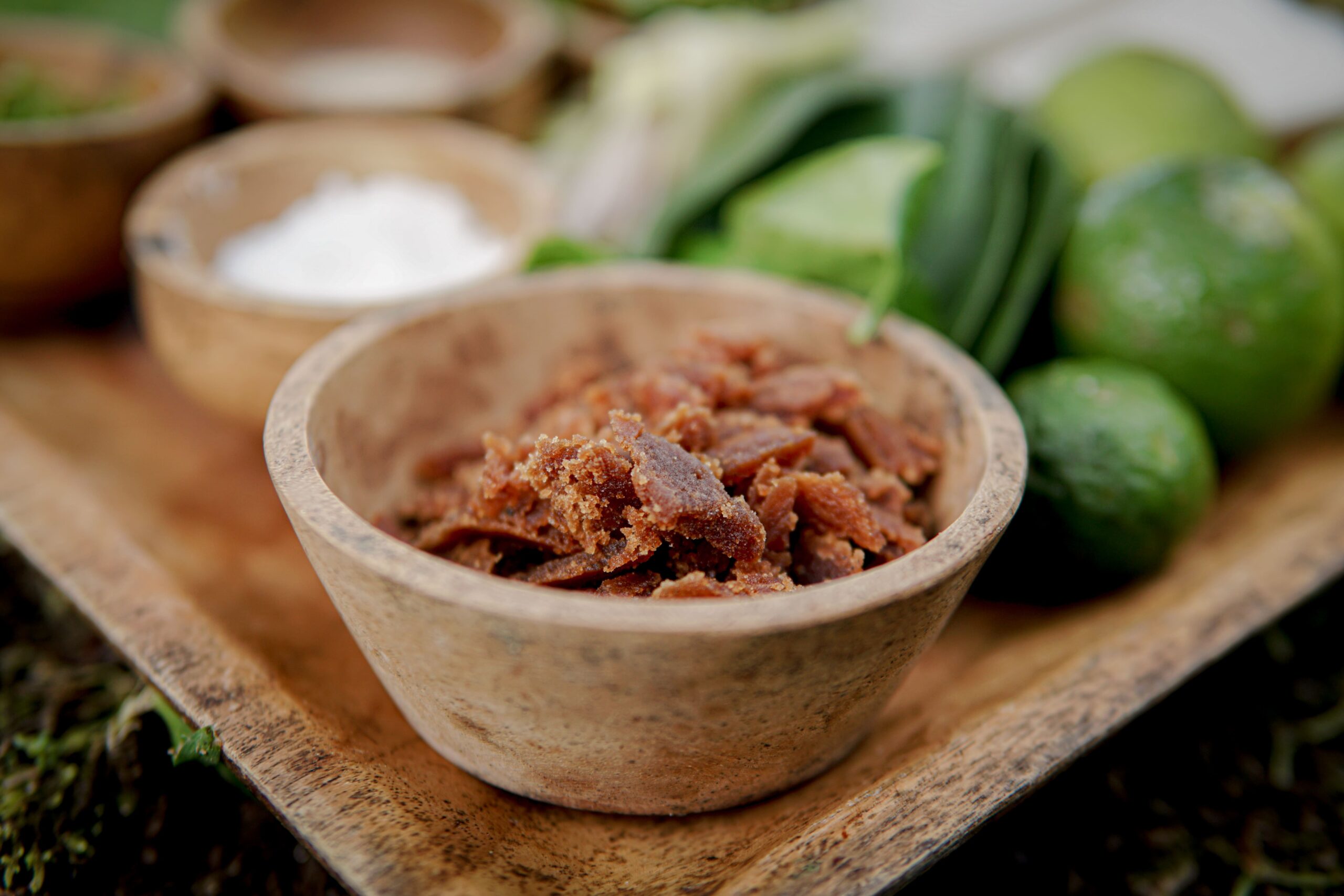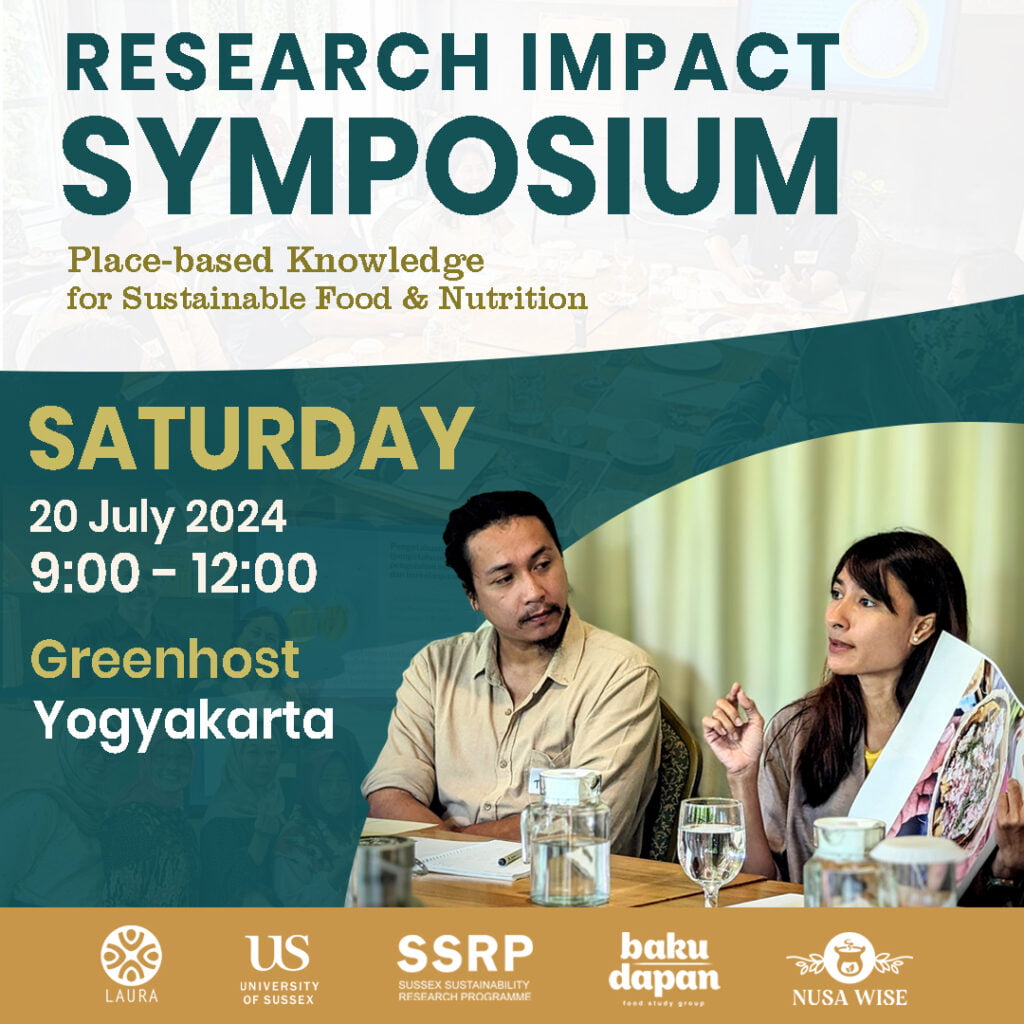
“This mode of research includes a commitment to reporting results back to research participants”
Collaborative Research Makes a Difference
Community-engaged research is research carried out collaboratively in the places that are most impacted by the results. This allows for co-production of knowledge that is equally relevant to the places of engagement and to science for the benefit of wider publics. This mode of research includes a commitment to reporting results back to research participants and soliciting feedback regarding its validity.

Research Impact Symposium – Yogyakarta, 20 July 2024
To this end the Research Impact Symposium organized for the project on place-based knowledge for food and nutrition sustainability {link to post} is hosted by Gadjah Mada University in Yogyakarta, Indonesia, on Saturday, 20 July 2024. Invited guests include focus group participants {link to post}, researchers involved with the project, and selected community stakeholders who can benefit from the project’s findings.
The goal of the symposium is to provide an opportunity for researchers, participants, and stakeholders to interact in a semi-formal environment to reflect together on the significance of the research findings. These reflections are recorded and fed back into the research to verify the findings. It is also a unique opportunity to collaboratively envisage next steps and to begin co-designing an action research agenda that aligns the needs and aspirations of the community with the scientific agenda to better understand and enact processes of scaling place-based initiatives for transformative change.
Organization and sponsorship
The symposium is co-organized by researchers from the University of Sussex, the Anthropology Laboratory (LAURA) at Gadjah Mada University, the Bakudapan Food Study Group, and Nusa Wise Knowledge Exchange.
Sponsored by SSRP.
“This mode of research includes a commitment to reporting results back to research participants“
“We also support and are supported by the work of community groups that are embedded in place”
Collaborative Research Makes a Difference
Community-engaged research is research carried out collaboratively in the places that are most impacted by the results. This allows for co-production of knowledge that is equally relevant to the places of engagement and to science for the benefit of wider publics. This mode of research includes a commitment to reporting results back to research participants and soliciting feedback regarding its validity.
Research Impact Symposium – Yogyakarta, 20 July 2024
To this end the Research Impact Symposium organized for the project on place-based knowledge for food and nutrition sustainability {link to post} is hosted by Gadjah Mada University in Yogyakarta, Indonesia, on Saturday, 20 July 2024. Invited guests include focus group participants {link to post}, researchers involved with the project, and selected community stakeholders who can benefit from the project’s findings.
The goal of the symposium is to provide an opportunity for researchers, participants, and stakeholders to interact in a semi-formal environment to reflect together on the significance of the research findings. These reflections are recorded and fed back into the research to verify the findings. It is also a unique opportunity to collaboratively envisage next steps and to begin co-designing an action research agenda that aligns the needs and aspirations of the community with the scientific agenda to better understand and enact processes of scaling place-based initiatives for transformative change.
Organization and sponsorship
The symposium is co-organized by researchers from the University of Sussex, the Anthropology Laboratory (LAURA) at Gadjah Mada University, the Bakudapan Food Study Group, and Nusa Wise Knowledge Exchange.
Sponsored by SSRP.
